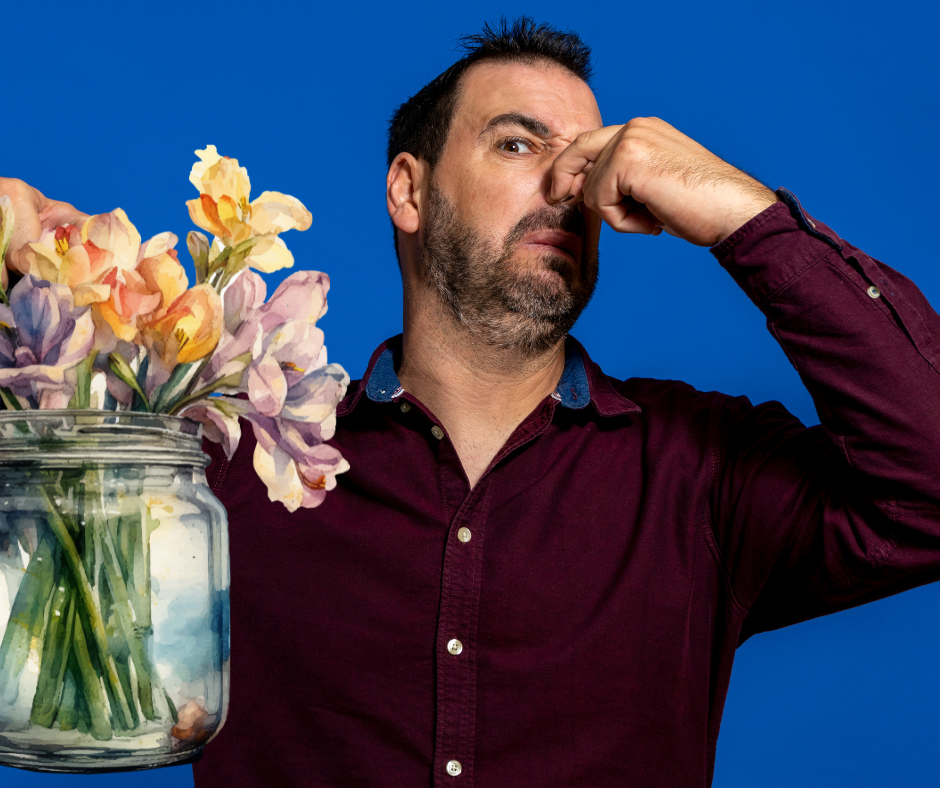
If you me or it stinks? Find out why your flowers and plants sometimes have an unpleasant smell
Lately, some of you have shared some funny and fragrant stories about bouquets of cut flowers and plants that give off unpleasant odors. Rest assured, you are not afflicted with an overdeveloped sense of smell, because there are valid reasons why your bouquets and plants may give off unpleasant odors.
When it's the flowers in my bouquet that smell bad.
Variety of Flowers
The variety of flowers you choose plays a major role in the scent. Some flowers fill the air with intoxicating fragrances, while others may have more unusual scents. Nature seems to play dice with flower fragrances much like it does with your exes.

Maturity of Flowers
Just like people, flowers have their ups and downs. When they start to fade or age, they usually emit a different scent, sometimes similar to that unique fragrance our grandmothers may have (admit that a baby, a young thirty-something and a grandmother do not smell the same thing...).
Bacterial Contamination
Bacteria, those floral saboteurs, can sneak into your vase and feast on the stems of your flowers. They multiply rapidly, releasing chemicals that break down plant tissue, creating a sort of Summerfest with an Imagine Dragon show on the stems of your red roses.
The Antimicrobial Solution
To preserve the freshness of your bouquet, preventive measures are necessary. It is essential to change the water regularly, ideally every two days, because bacteria do not appreciate clean baths. In addition, make sure that the vase is spotless, free of any previous residue.
Keep Intruders Away
If you really want to keep unwanted bacteria out of the party, consider adding flower food to the water. This will feed your flowers while making the water less attractive to bacteria. If you don't have flower food on hand, a few drops of bleach, vinegar, or lemon juice in the water can also work, as bacteria don't like these arrangements.
When my plants smell bad.
Soil Drainage Problems
Potted plants do not like to have their feet in water. Poor soil drainage can lead to root problems and unpleasant odors. So make sure your plants do not sit in water and that a good drainage system, such as pots with holes, clay pebbles or stones, is in place.
Overload with fertilizer
Sometimes too much love can be bad. Too much fertilizer can make your plants smell unusual. It is essential to follow the recommended doses and to reserve garden fertilizer for the garden, because sheep manure in the living room is a no-no!
Critter Infestations
Houseplants can become a haven for various unwanted insects such as aphids, mealybugs, spider mites and midges. These small invaders can not only damage your plants, but also release unpleasant odors.
Feline Incidents - When Kitty Takes the Snake Plant for a Litter Box
There is also an incident that every cat owner dreads: when Kitty decides that the plant is actually a giant litter box. This behavior can lead to unpleasant odors and considerable damage, even when owners do not witness this furtive act (ah, little ones. Mmmmmm… CAT!)

Conclusion - Demystifying Floral and Plant Odors
As we explore the olfactory mysteries of flower bouquets and plants, we’ve revealed that a variety of factors can influence scents. Flower varieties, ripeness, bacterial contamination, and even feline mishaps all play a role in how we perceive odors. To keep your flowers fresh and aromatic, it’s crucial to change the water regularly, keep a clean vase, and add flower food or alternatives like bleach, vinegar, or lemon juice.
As for your houseplants, make sure to ensure good soil drainage, moderate fertilizer use, prevent critter infestations, and manage feline behaviors. Even when owners aren’t always present, proactive attention can help prevent unwanted odors and keep the environment fresh and pleasant. Ultimately, while nature can throw up some olfactory surprises, proper care can ensure your floral and plant space always smells great.
